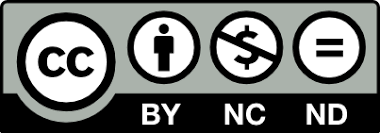GENDER ISSUES IN GEORGIAN AND ENGLISH PROVERBS
Keywords:
proverb, gender, sociolinguisticsAbstract
A proverb is a short, concise expression that conveys folk wisdom. It is universal and its roots must be sought in different cultures. The most important characteristic for them is that it belongs to the oral tradition. The general theme of the proverb relates to human experience and activities (Schiffer, 2010; Rusieshvili 2005;). Moreover, in almost all cultures, proverbs are general-referential expressions, the wisdom of which society must take into account (Rong, 2013). Proverbs are carriers of shared cultural values and can even be called a symbolic expression of culture. Therefore, reflecting the social and culturally specific features of society, the proverb can be classed as a sociolinguistic phenomenon. As well as this, through the proverb, we can explore the cultural worldview of the nation. Based on contrastive and comparative analysis, this article examines gender-marked Georgian and English proverbs. More specifically, it discusses (1) key themes revealed in the relevant groups of proverbs in both cultures, (2) similarities and differences between the gender stereotypes emerging in the proverbs of both cultures, and (3) reasons behind these similarities and differences.
Full Text (PDF)
References
რეხვიაშვილი, ლ. (2012, September 14). გენდერული თანასწორობა - ქართული საზოგადოების შეხედულებები. Retrieved from http://liberali.ge/articles/view/2641/genderulitanastsoroba--qartuli-sazogadoebis-shekhedulebebi
რუსიეშვილი, მ. (2005). ანდაზა. გამომცემლობა ლომისი სელექციური აბორტების შედეგები საქართველოში (2018, November 20).Retrieved from https://www.radiotavisupleba.ge/a/სელექციური-აბორტების-შედეგებისაქართველოში/29611223.html
Fairclough, N. (2003) Analysing discourse - textual analysis for social research. London: Routledge.
Fairclough, N. (2010) Critical discourse analysis: the critical study of language (2nd ed.).London:
Longman. Gender study finds 90% of people are biased against women. (2020, March 5). Retrieved from https://www.bbc.com/news/world-51751915
Grzybek, P. (1994) Proverb. In (Ed.) W. Koch Simple forms: An encyclopaedia of simple texttypes in lore and literature. pp. 227-41. Bochum: Brockmeyer.
Harriet, A. (2018, April 23). Men 'dominate in every sector of society', says damning report. Retrieved from https://www.independent.co.uk/news/uk/home-news/men-dominateevery-sectorgender-equality-fawcett-society-a8317346.html
Hofstede, G. (1991). Cultures and organizations: Software of the mind. London [etc.]: McGrawHill.
Khan, Qaisar & Naz, Arab. (2015). The Linguistic Representation of Gender Identities in Pakhtu Proverbs. NUML Journal of Critical Inquiry. 13. 73-87.
Lee, J. (2015). Chinese Proverbs. How are Women and Men Represented?. Multidisciplinary Journal of Gender Studies, 4(1), 559-585. doi: 10.4471/generos.2015.47
Literary Terms. (2015, June 1). Retrieved March 16, 2020, from https://literaryterms.net/
Michael. (2018, May 17). Domestic violence statistics: Emotional abuse statistics: Gender equity. Retrieved from https://www.ananiasfoundation.org/domesticviolencestatisticsgclid=CjwKCAjw4pT1BRBUEiwAm5QuR7wEL2FaLZJzU45EACgJ1QbXYXWprowmquz4Je-RlzYTA9agIFBoCjwYQAvD_BwE
Moran, M. (March 2019). Gender Issues in Folklore: A Study with Special Reference to Some Assamese Proverbs. International Journal of Humanities and Social Science Invention (IJHSSI), Volume 8 Issue 03 Ser. II, pp.60-64 Mubarok, Yasir. (2017). REPRESENTATION OF WOMEN IN THE SUNDANESE PROVERBS. IJASOS- International E-journal of Advances in Social Sciences. 205-205. 10.18769/ijasos.309677.
Oppenheim, M. Women’s Correspondent (2019, February 20). Women still face ‘massive gender bias' in UK workforce, new AI study finds. Retrieved from https://www.independent.co.uk/news/uk/home-news/women-gender-bias-uk-workforce-menaia8786936.html
Rasul, S., & Jinnah, F. (2016). Gender and Power Relationships in the Language of Proverbs :Image of a Woman.
Rong, H. (2013). Proverbs Reveal Culture Diversity. Cross-Cultural Communication, Vol. 9, No.2, pp. 31-35.
Published
How to Cite
License
Copyright (c) 2021 Online Journal of Humanities ETAGTSU

This work is licensed under a Creative Commons Attribution-NoDerivatives 4.0 International License.












